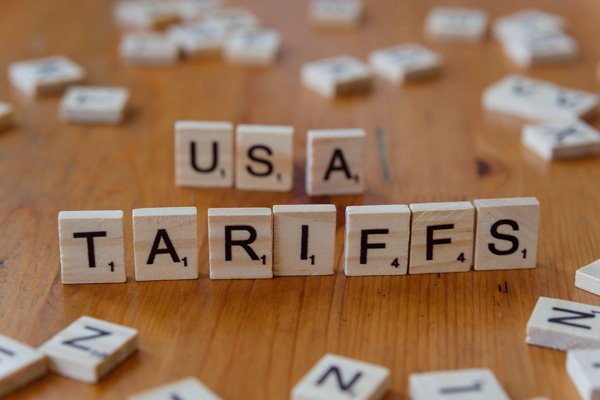President Trump will impose a 25 percent tariff on all EU goods, while the EU vows robust countermeasures

[Tariff. Photo credit to Unsplash]
On Wednesday, February 27th, President Donald Trump stated during a press briefing that if the European Union does not revise what he described as unjust trade practices, he would impose a 25 percent tariff on all EU goods, an announcement that has elicited significant opposition from EU leaders and heightened concerns over a potential escalating transatlantic trade conflict.
Trump expressed his views during a conversation with reporters, cautioning that if these tariffs were enforced, the United States would halt the purchase of European products, a strategy he thinks would compel the EU to revisit trade agreements.
He claimed that the EU was established to exploit the United States and contended that its present actions have resulted in a growing trade deficit that negatively impacts American companies.
In response, the European Union swiftly dismissed Trump’s assertions, emphasizing that the EU ranks among the globe’s largest free markets and has contributed to the growth of both American firms and European industries via free and equitable trade.
European Commission trade representative Olof Gill stated that the EU would firmly oppose any efforts to enforce a 25 percent tariff on its goods and cautioned that such an action would result in significant retaliatory measures.
He clarified that if the U.S. proceeded with tariffs, the EU would respond by targeting well-known American products like bourbon, jeans, and motorcycles, actions that could negatively impact both sides of the trading relationship.
Donald Tusk, the Polish Prime Minister and the current holder the EU's rotating presidency, used social media to express that the EU was created not to harm any country but to maintain peace, foster mutual respect, and encourage free trade between nations.
Similarly, Spanish Prime Minister Pedro Sanchez expressed his resolve to oppose any unjust tariffs or hidden threats to European sovereignty, promising that the EU would protect its consumers and businesses at every turn.
This dispute arises at a time when relations between the United States and the European Union are already strained, with Trump warning that ongoing trade imbalances might even force Washington to reconsider its security promises to European allies.
The EU, however, maintains that cooperation and dialogue are the best means to maintain the strong trade ties between the two regions.
It is estimated that the trade volume between the EU and the United States is about $1.5 trillion, a number that highlights the importance of their economic relationship.
While Trump often points to a trade deficit as evidence of unfair practices, the EU argues that the situation is more complex.
The EU has a large surplus when exporting goods, but this is partially balanced by the US surplus in services trade.
For example, in 2023, goods trade between the two sides amounted to 851 billion euros with a significant surplus for the EU, while services trade was also large, even though it resulted in a deficit for the EU.
These figures illustrate that both sides benefit from their trade relationship and that a full-blown trade war could hurt industries and consumers in both regions.
Olof Gill reiterated that the EU values dialogue and openness, and that it is ready to work with the United States under fair trade rules.
He warned that any sudden move to impose tariffs would be met with immediate and strong responses, which could disrupt the global market.
Trump, meanwhile, maintained that the United States is a key player in the world economy and described America as the “pot of gold” that everyone wants, arguing that stopping the purchase of European goods would force the EU to negotiate better deals.
This ongoing disagreement is not new, but it has become more intense in recent years due to changing political views and economic policies on both sides of the Atlantic.
Many experts believe that both the United States and the EU must find a way to resolve these issues through diplomatic engagement rather than through drastic measures that could trigger a trade war.
For now, the future of transatlantic trade relations remains uncertain, as both sides brace for possible escalations, and the outcome of this dispute could have lasting effects on global markets and trade policies in the years to come.

- Chan Leo Kang / Grade 7
- Perkiomen School

![THE HERALD STUDENT REPORTERS [US]](/assets/images/logo_student_us.png)
![THE HERALD STUDENT REPORTERS [Canada]](/assets/images/logo_student_ca.png)
